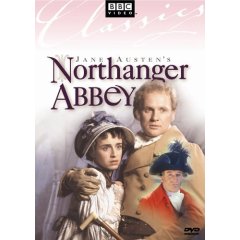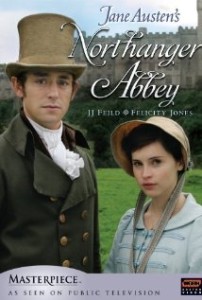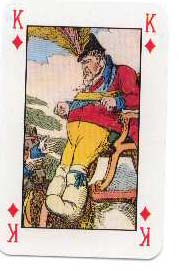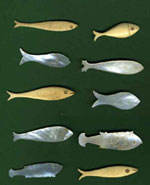Andrew Davies, who has successfully adapted Sense & Sensibility, Pride & Prejudice, Emma, and Northanger Abbey, has stated that he will never adapt Mansfield Park. And who can blame him? There have been three adaptations of Mansfield Park and none of them really succeed.
In 1983, the BBC produced a miniseries adaptation.
This Fanny Price, in my opinion, is a pretty fair adaptation of the one in the novel. And I do like Nicholas Farrell as Edmund. Unfortunately, the whole thing tends to be a tad soporific. Watch this one if you are suffering from insomnia.
In 1999, Patricia Rozema tried her hand at Mansfield Park
This is an interesting movie, but so not Mansfield Park. The director admitted to creating a new Fanny, one whom she insists includes elements of Jane Austen. Rozema’s Fanny is a writer if that’s what she means. Most of the rest seems to be solely a construct of Ms. Rozema’s imagination. What this adaptation has going for it (in my opinion, anyway) is Jonny Lee Miller as Edmund. I’ll pretty much watch anything with JLM in it.
Most recently, ITV produced an adaptation, televised in 2007.
I’m a huge Jane Austen fan but I must admit to not watching this adaptation in its entirety. I have no idea who this Fanny Price is, giggling and running around Mansfield Park with her hair down. This not my Fanny Price and I’m pretty sure it’s not Jane Austen’s either.
What’s so hard about adapting Fanny? Here’s what I think. Fanny Price is the strong, moral center of this book, but she doesn’t have much of a character arc. The Fanny Price who finally wins and marries the man she loves is pretty much the Fanny Price who came to Mansfield Park as a child. The other characters change around her or not (*ahem* Mrs. Norris), but Fanny remains stalwart and true.
What do you think? Is there a way to adapt Fanny without changing her? Do you have a favorite adaptation? Want to take a stab at one?




